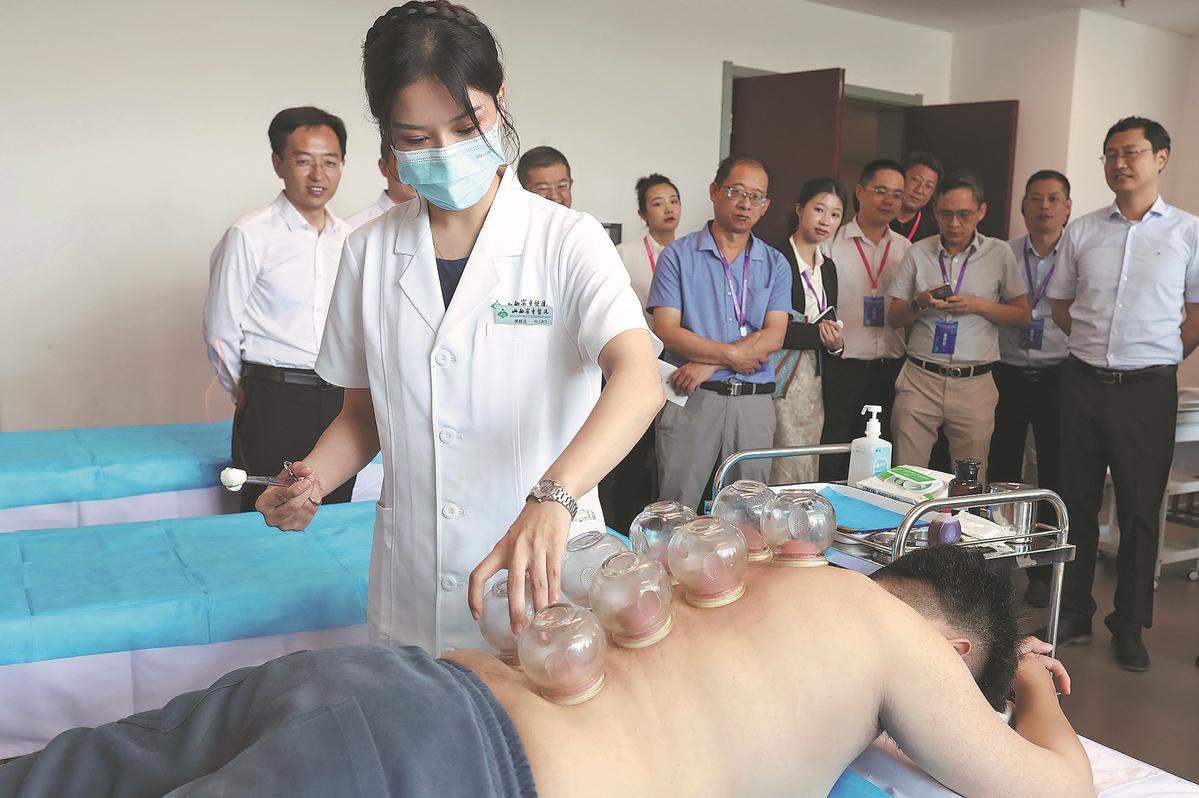More TCM herbs grown in S.E. Asia
Alliance formed at conference to promote high-quality development


As traditional Chinese medicine gains popularity in Southeast Asian countries, industry insiders say they are eying the expansion of TCM medicinal herb cultivation overseas to make such therapies more accessible.
"Traditional Chinese medicine is very popular in Cambodia because it can treat a variety of diseases," said Nhek Soparama, minister counselor of the Cambodian embassy in China. "Over the past two years, more than 20,000 Cambodians have received TCM treatment."
She was speaking at the 2024 China-ASEAN Traditional Chinese Medicine Industry Exchange and Promotion Conference, which was held recently in Taiyuan, the capital of Shanxi province.
The event attracted over 300 participants, including ambassadors from Association of Southeast Asian Nations member states, international organizations and regional TCM authorities.
Rogerio Paulo Chaves, counselor of the Timor-Leste embassy in China, said that people from Southeast Asian countries, including Timor-Leste, have long benefited from TCM.
"Many young people and students from Timor-Leste are studying medicine in China and we have encouraged them to dedicate more efforts to learning TCM," he said.
Budi Hansyan, commercial counselor of the Embassy of the Republic of Indonesia in China, said that a growing number of Indonesians began using TCM after the COVID-19 pandemic started.
He said that authorities are looking forward to introducing more TCM products to Indonesia and they expect China to import more medicinal herbs from Indonesia.
In their push to promote TCM, ASEAN countries have encouraged TCM manufacturers to plant medicinal herbs and manufacture TCM locally, as part of efforts to boost the therapy's acceptance, cut costs and advance local economic development, according to a blue book on the TCM industry in ASEAN countries that was released during the conference.
According to information released during the conference, a traditional medicinal herb planting base spanning about 1,333 hectares is expected to be ready for large-scale cultivation within two to three years in Cambodia. Medicinal herbs in high demand will be grown there.
Guo Chuanwei, director of the trade and investment division of the ASEAN-China Center, said ASEAN countries are the main foreign planting areas of medicinal herbs and important partners for trade involving TCM products.
"With increasing recognition of TCM overseas and the growing TCM market, some Chinese enterprises are attempting to cultivate Chinese medicinal herbs in Indonesia, Malaysia, Thailand, Laos and other ASEAN countries," he said.
Six provinces, including Shanxi, formed an alliance at the conference to promote the high-quality development of TCM.
Li Ruibing, a health official in Shanxi, said the province is looking forward to strengthening trade and investment exchanges with other provinces and ASEAN countries.
Zhou Huiying contributed to this story.
Contact the writers at wangxiaoyu@chinadaily.com.cn
- China's top political advisor meets delegation of A Just Russia party
- Pooled efforts expected to deepen reforms in Hong Kong with new legislature elected
- Nanfeng mandarins of Jiangxi are going global
- Former senior official of Guangxi expelled from Party
- Former CPPCC official Bi Jingquan dismissed from office
- Man detained for allegedly hugging unfamiliar girl in Guangdong park



































